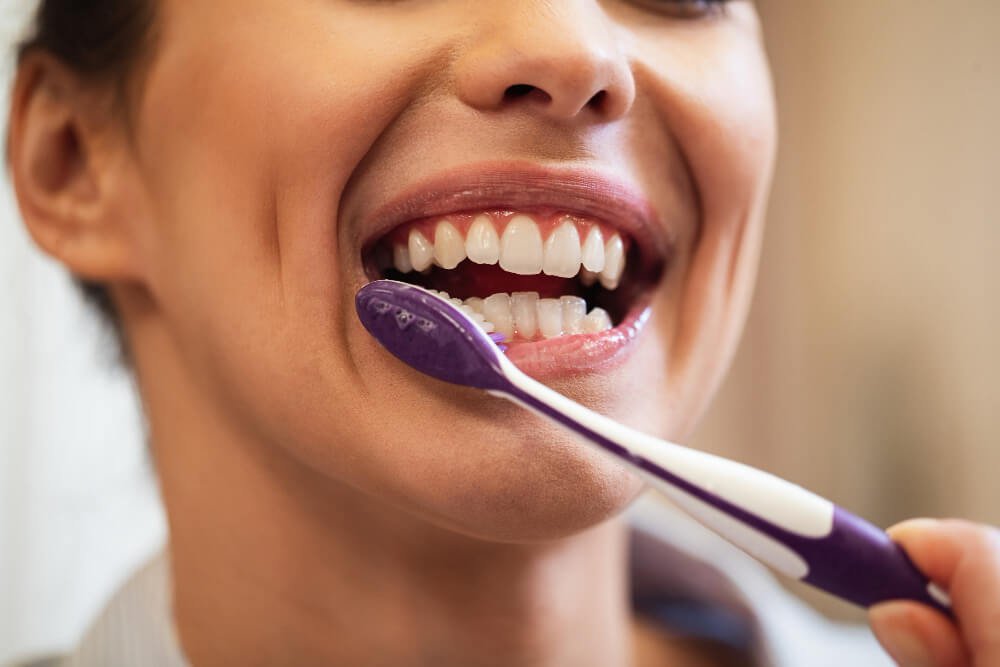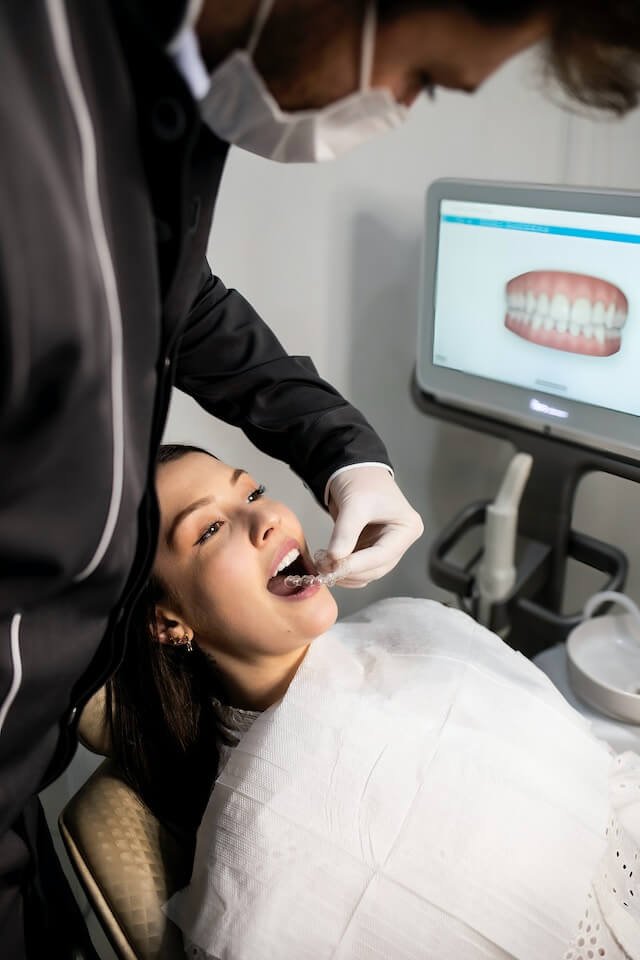Flossing is an integral step to good dental health, and skipping this step can lead to a range of issues. Still not convinced? Check out these facts about flossing, and some might surprise you.

Going to the dentist is not at the top of many people’s lists of fun things to do. The thought of intrusive dental procedures and sharp objects makes many shudder with dread, not to mention the costly price tag. However, regular dental appointments are crucial to prevent issues and keep our teeth and gums healthy.
Most of us understand the importance of brushing our teeth twice a day, but over 30 per cent of Brits never use dental floss, despite dentists recommending to do so daily.
Flossing provides many benefits essential to keeping our teeth and gums in good shape. Neglecting this step or irregular flossing allows plaque to build up between your teeth and gum line, which leads to tooth decay and gum disease.
Flossing is a cheap and effective way to preserve a beautiful smile, and if you are still not convinced, read these fun facts about flossing.
9 Facts About Flossing

1.Brushing Only Reaches 60% of The Surface Area of The Teeth
Your toothbrush cannot reach every part of your teeth’s surface, especially those tight spaces between your teeth where gum disease starts. Adding flossing into your daily routine will clean the remaining 40% of your teeth surfaces.

The main types of floss available to buy are:
-
Thread Floss
-
Waxed and Unwaxed Floss
-
Tape Floss (Dental Floss)
-
Biodegradable floss.
Floss picks are also an option, and you can buy a water dental flosser for an affordable price.
2.Prevents Gum Disease
Gum disease, also known as periodontal disease, is caused by poor dental hygiene, which enables plaque build-up around the teeth and gums.
Your toothbrush only removes plaque from three of the five surfaces of a tooth, so flossing is essential to reach the entire surface and prevent the build-up of plaque that leads to gum disease.
Flossing also promotes healthy gum tissue as it stimulates blood flow to your gums.
3.Helps Reverse Gingivitis (Early gum disease)
Gingivitis is a form of mild gum disease that includes red, sore, inflamed and bleeding gums. Gingivitis can be treated by brushing and flossing every day; if the plaque has become tartar, then you will need a professional dental clean to remove it.
If gingivitis is left untreated, it can advance to periodontitis, which cannot be reversed and can lead to the loss of teeth and gum recession.

4.Gets Rid Of Plaque
Plaque is a soft, sticky film on the teeth from bacteria, food debris, sugars, and saliva and starts forming just 20 minutes after eating. Flossing gets into the hard-to-reach areas of our teeth, removing plaque before it hardens and turns into tartar.
Oral-B recommends at least 18 inches of floss for an effective flossing routine. Here is a guide on how to floss correctly, or watch this video tutorial by the American Dental Association to see it in action.
5.Prevents the Build-Up of Tartar
When plaque hardens on the teeth, it turns into tartar, which only professional dental cleanings can remove. You can avoid this step with regular flossing to prevent the progression of tartar on your teeth for a healthy mouth.
6.Zaps Bad Breath
Bad breath occurs from odor-producing bacteria growing inside your mouth. These bacteria assemble on the pesky food particles left in-between your teeth and release sulfur compounds as they break the bits of food, causing your breath to smell.
Flossing reduces this unpleasant factor by removing the trapped food particles and leaving a clean mouth and fresh breath.

7.Saves You Money (Yay)
Dr. Alexandra Germain, founder of Identity Clinic, said on its blog, “research shows that people who flossed regularly save significant amounts of money, avoiding costly and painful dental interventions.
Dental floss costs less than your daily coffee, helps prevent gum disease and tooth loss and keeps plaque and tartar at bay, so don’t skip it!
8.Boosts Your Immune System
Flossing removes a lot of bacteria from the mouth, meaning your body does not need to send its resources to heal and instead redirects to other parts of your body. This boots your immune system, which is beneficial for your overall health.
Research has also shown flossing plays a crucial role in preventing the risk of heart disease. Dr. Sasha Ross, Periodontist for the Cleveland Clinic, told WCNC, “There’s really a very strong association between the two where patients have gum disease, they’re at much greater risk for having heart disease, stroke or other issues.”
9.Prevents Pregnancy Related Dental Issues
A good oral hygiene routine is essential during pregnancy as your teeth and gums need special attention to reduce the risk of dental infection in your newborn.
Colgate advises, “Regular brushing and flossing, eating a balanced diet and visiting your dentist regularly will help reduce the dental problems that accompany pregnancy.”
Dental floss is a low cost method to prevent a whole host of issues and health problems. Flossing on a regular basis promotes a healthy smile and enables us to keep our teeth throughout our lifetime.
We hope you found these fun facts about flossing useful and that they inspire you to start or continue a flossing routine; your teeth and gums will thank you.
Disclaimer: The content is not a substitute for professional medical advice, diagnosis, or treatment. Always seek the advice of qualified dentists with questions you may have regarding medical conditions.


